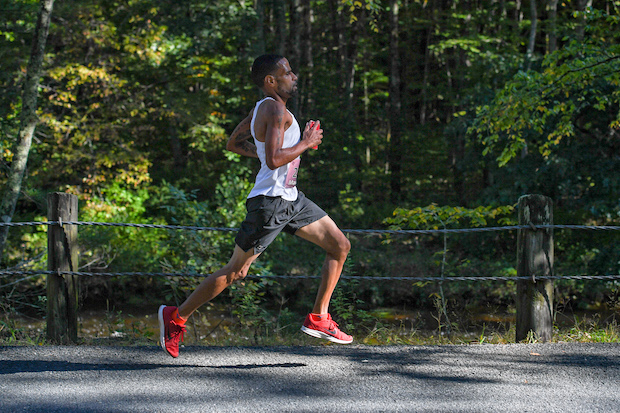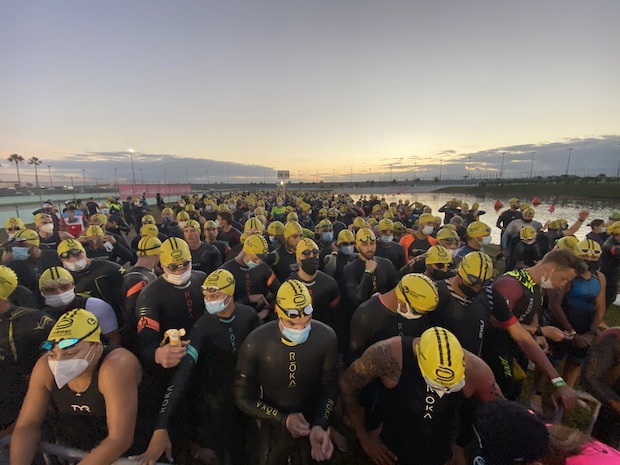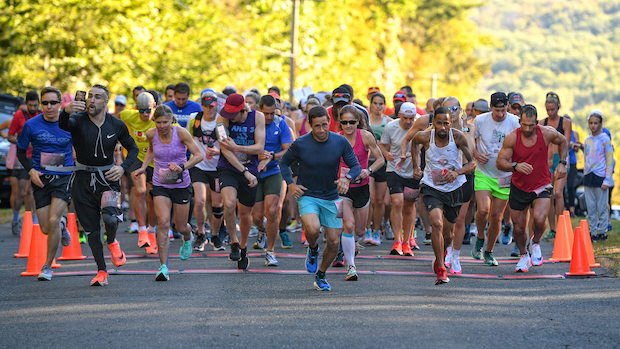Racing in the Age of COVID: Be Flexible

We're now entering month 19 of the COVID-19 pandemic. If you told me in March 2020 that we'd still be seeing large-scale events shutdown at this point, such as the Marine Corps Marathon going virtual for the second consecutive year, I would have eaten my hat. (If you follow me on Twitter, you know I've gotten very good at this over the last eight weeks.)
But here we are. Races are still having permits pulled at the last minute. IRONMAN drew much scorn for condensing the IRONMAN 70.3 World Championships in St. George down to a single day and not offering impacted female athletes, whose race date had changed from Friday to Saturday, any recourse. My wife and I just completed putting on our first in-person race in two years this past weekend, and admittedly, some of those RD skills were a little rusty. That all being said, there's a bunch of lessons for athletes and fellow race directors alike.

Race and Produce Locally
This should be the age of grassroots events. Smaller races should be thriving — after all, it is easier to get permitting done during a pandemic when you're talking about 250-500 people instead of 2,500-5,000.
Our half marathon is roughly two hours from our house, but it was truly local to us when we lived in Connecticut. And it helps support small businesses and charities within the borders of the state. We drew more than 75% of the registered field from less than 50 miles of the race site. By emphasizing the local feel, it helps fill your field.
A Note on Travel
If you're going to travel for a race — whether that's 100 or 1,000 or 10,000 miles from home — you need to book refundable travel. Look no further than what happened in St. George — with 4 weeks to go, IRONMAN had to condense the event down to a single-day. There was a vocal outcry from many women who had planned to race on Friday and fly out midday Saturday. This was, obviously, no longer an option. And if you booked non-refundable plane tickets, it was time to pay for significant re-booking fees. And hotels. And rental cars…
Now, look. I'm not going to fault IRONMAN for condensing the race to a single day, nor am I going to fault them for condensing down to Saturday (good luck convincing your host community that they should have everything shut down on a weekday). Some of this lies with the athlete's responsibility. That being said, I also think that IRONMAN should have shown some form of consideration to athletes impacted, especially with 70.3 Worlds returning to St. George the following year.
But the point stands: refundable hotel rooms. Choose airlines without rebooking fees. The situation remains too fluid to be able to completely commit to anything.

Choose Your Races Wisely
If you are gung-ho about racing right now, you need to choose your events wisely. Certain locations in the United States are far more likely to permit large events than others. I would not at all be surprised, for instance, for the Boston Marathon be forced to pivot to all virtual like Marine Corps just did. But I would expect any event in Florida to go forward.
In that case, then, you need to pick out a location where you are sure an event will go off, or you need to find a race producer that offers the degree of flexibility you seek. Although IRONMAN has allowed most athletes to defer or transfer when an event is cancelled due to events out of their control, there haven't been refunds. If that's a solution you seek, CLASH Endurance and their events offer a money-back guarantee if their events are cancelled due to the pandemic.
And Lastly, Don't Be a Dick
This really should go without saying. Unfortunately, though, both athletes and race directors alike probably need to hear it again.
Athletes — race directors are trying. Yelling at volunteers or race staff because the race is sold out, or because the post-race food isn't the same as it always was, is not going to get you anything. And you're the one who is going to look like an asshole.
Race Directors — your athletes are your customers. Although the customer is not always right, remember that people have many choices when it comes to events. You can't always find new people to replace your current customer base. Be flexible. We offered a no questions asked "if exposed to COVID in the two weeks before the race, receive a deferral to 2022." We still made money on the event. You can do this.
Happy racing, everybody.
Photos: 1 and 3, Ben Kimball; 2, Eric Wynn / Slowtwitch Media House


Start the discussion at slowtwitch.northend.network